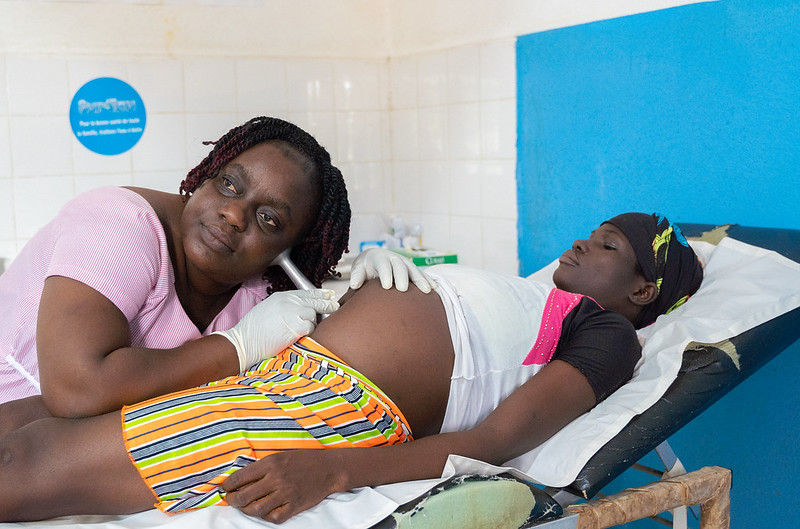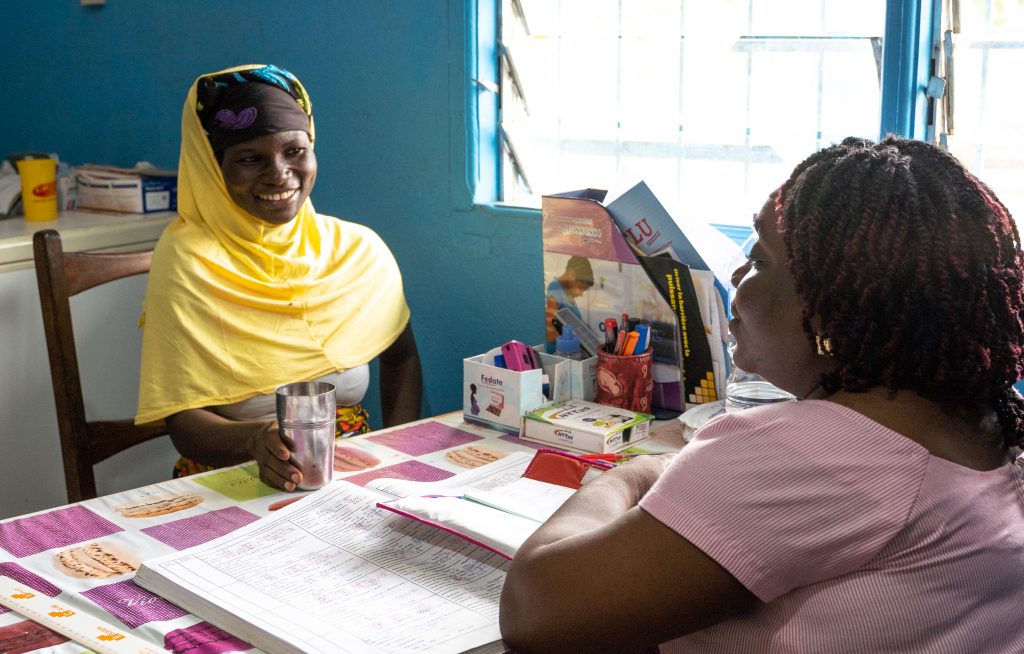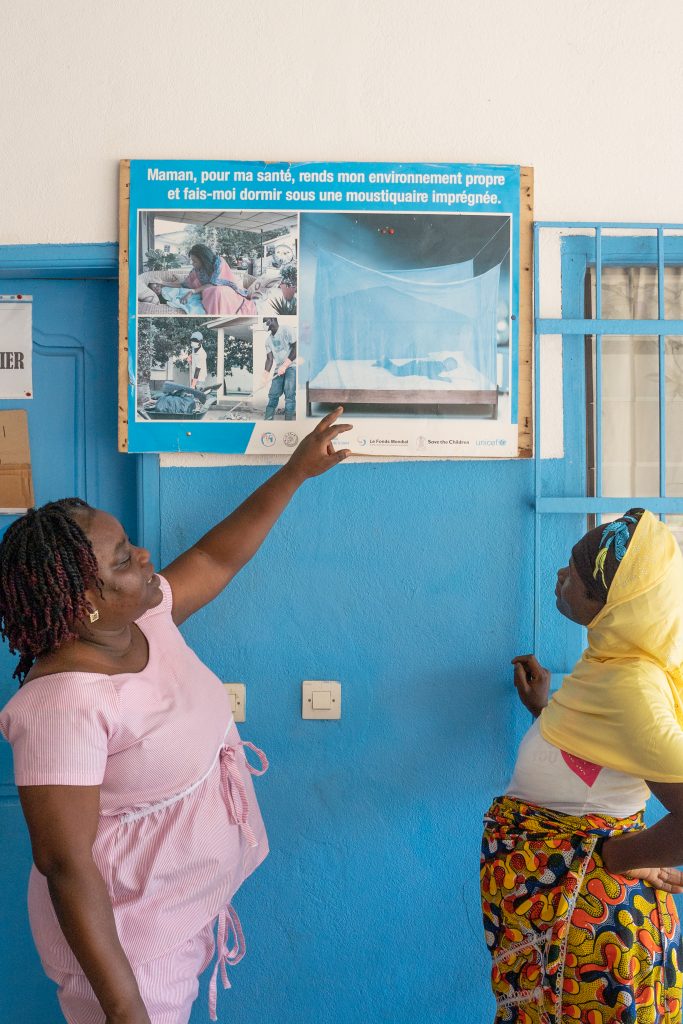
In Côte d’Ivoire, Amichia Solange examines Boni Awa during a routine pregnancy visit. Photo by Mwangi Kirubi, PMI Impact Malaria.
A warm, energetic hum seems to follow Amichia Solange as she goes from patient to patient, sharing goodbye hugs as each woman heads out the door.
At Mouyassue Rural Health Center in Côte d’Ivoire, Amichia is one half of the indispensable duo that provides medical care to women throughout all stages of pregnancy. Amichia and her fellow midwife see more than 400 pregnant women a year.
What these pregnant women learn from Amichia, if they don’t already know, is that malaria infection in pregnancy is a major threat to their lives and the health of their babies.
Pregnant women are particularly vulnerable to malaria when they become infected because pregnancy reduces a woman’s immunity, increasing the risk of illness, severe anemia, and death. Maternal malaria increases the risk of miscarriage, stillbirth, premature delivery, and low birth weight—a leading cause of child mortality. Last year, an estimated 11 million pregnant women in sub-Saharan Africa—almost three in ten pregnancies—were infected with malaria.
This reality is hugely consequential for women and their families in Côte d’Ivoire. Every single person in the country—about 24 million people—is at risk of malaria throughout the entire year, with spikes in transmission during the rainy season.
The U.S. President’s Malaria Initiative (PMI), which is led by USAID and co-implemented with the Centers for Disease Control and Prevention, funds training for health care providers like Amichia. And that means she can save lives.
One of Amichia’s patients, Boni Awa, learned of her heightened risk several years ago when she was pregnant with her first child. Her family lives on a palm plantation with many mosquitoes.
Fortunately, there are proven ways to protect pregnant women from malaria.

After midwife Amichia Solange gives Boni Awa medication to prevent malaria, the two women discuss Amichia’s pregnancy. Photo by Mwangi Kirubi, PMI Impact Malaria
Boni gave birth to her third child about a month ago after a malaria-free pregnancy. She achieved this by sleeping under an insecticide-treated bed net every single night and taking anti-malaria pills during three antenatal visits with Amichia. These pills are given to pregnant women at each routine pregnancy visit in the second and third trimester, regardless of whether the woman is infected with malaria. This is known as intermittent preventive treatment of malaria in pregnancy.
Boni received the pills and net for free thanks to PMI.
“I’ve noticed a decrease in malaria among women who adhere to my advice: those who come for monthly visits during pregnancy, take the malaria prevention pills, and use nets at home,” says Amichia.
Among 36 African countries that reported in 2018, an estimated 31 percent of eligible pregnant women received the recommended three or more doses of antimalarials, compared with 22 percent in 2017 and two percent in 2010, indicating considerable improvement in country uptake of this intervention.
Last year, PMI distributed enough pills to protect 9 million pregnant women—made possible by the generosity of the American people. With continued support, clear guidelines in countries, strong training and mentoring of health providers, and the anti-malaria pills available at health facilities, more pregnant women like Boni will be reached each year with this life saving intervention.

Amichia Solange provides guidance to Boni Awa on the importance of using an insecticide-treated bed net to prevent malaria in pregnancy. Photo by Mwangi Kirubi, PMI Impact Malaria
A version of this story originally appeared on Medium
